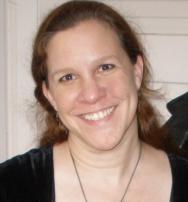Jack Durand, a 14-year-old Briton, is a world champion. He’s so dominant in his sport that at his last championship match, he won 20 of his 24 games, and was deemed the winner with two games left to play. Soccer? Cricket? Rugby? Think Scrabble.
At last year’s World Youth Scrabble Championship held in Sri Lanka, the teenager won his final game with the words “neinei,” a New Zealand shrub, “wourali,” a poisonous plant extract and a final coup in using the word “mistings” across two triple-word scores to get 122 points in one turn. He beat 120 other junior Scrabble players and walked off with a prize of $1,000.
The first World Youth Scrabble Championship was held in 2006 in Wollongong, Australia, and attracted players from Australia, Bahrain, Canada, China, England, India, Indonesia, Kenya, Kuwait, Malaysia, New Zealand, Nigeria, Oman, Pakistan, Philippines, Qatar, Singapore, South Africa, Sri Lanka, Thailand, Trinidad and Tobago, United Arab Emirates and United States. This year’s World Youth Scrabble Championship is set to kick off on October 31st at the University of Western Australia in Perth, Australia. The winner of the event will qualify for the adult-level WESPA Championships (formerly World Scrabble Championship) which will be held in Perth from November 4th to 8th just after the youth event.
The World English Scrabble Association (WESPA), which heads up both the youth and adult championships, serves the needs of Scrabble players worldwide, according to its Web site. It promotes international Scrabble tournaments throughout the world, usually hosted by individual countries. WESPA, like any good sports association, promotes standardized rules for the game. To resolve challenges to words by competing players, the association uses as its official lexicon the Collins Official Scrabble Words 2015 guide. (Yes, there is such a thing.) Interestingly, the Collins guide has added 6,500 words to the lexicon this year alone. (Think “selfie,” “geocache” and “pwn.”)
Similar to chess matches, official Scrabble games make use of rotating boards and time clocks to ensure fairness. Interestingly, it’s one of the few games that has its own championships depending on language. WESPA governs the game in English, while other associations govern the game in other languages. (Interestingly, the most recent winner of the francophone Scrabble championship, a 48-year-old New Zealand man and winner of three English world championships, does not actually speak French.)
Scrabble, obviously, takes no specific facility; as long as an indoor space of appropriate dimensions and with conveniences is available, in addition to the equipment mentioned earlier, it requires only tables, chairs and any necessary officials. As the event moves to higher levels, considerations such as travel and lodging infrastructure become essential, much as they do in traditional sports. According to an entry in Wikipedia, in the United States, the North American Scrabble Championship (formerly the National Scrabble Championship) is the largest Scrabble competition in North America. The event is held every one or two years, and from 2004 through 2006 the finals were aired on ESPN and ESPN2. The tournament rotates locations around the United States; the 2015 event was held in Reno, Nevada.
Lovers of the game say competitive Scrabble takes a great deal of mental strength to excel. Serious Scrabble players spend at least five hours a day revising words, learning new words, reading and paying attention to the best on the international Scrabble circuit, according to Patricia John, who won the Trinidad and Tobago Scrabble Association (TTSA) Master’s Tournament earlier this year and is considered one of the world’s greatest players.
“It’s not an Olympic sport, but it should be,” John recently told Trinidad and Tobago news source Newsday. (In that case, Scrabble can look to bridge and chess, both of which also recently lobbied for inclusion.)

